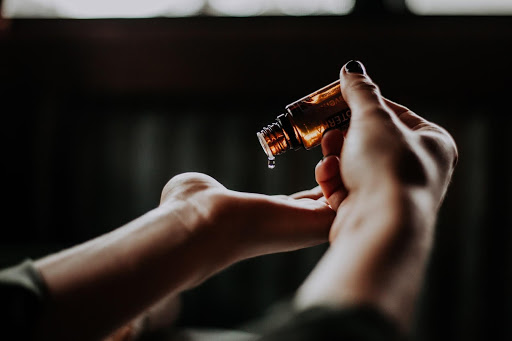As medical research continues to establish the impressive medicinal and therapeutic potential of non-psychoactive cannabis compounds like cannabidiol (CBD), a growing number of consumers have taken to using it as a health supplement.  When shopping for CBD products yourself, your number one consideration should always be your desired use case. Do you have a chronic pain disorder keeping you up at night? Or are you simply looking to proactively supplement against a sporadic condition you’ve been diagnosed with, such as gout inflammation?
When shopping for CBD products yourself, your number one consideration should always be your desired use case. Do you have a chronic pain disorder keeping you up at night? Or are you simply looking to proactively supplement against a sporadic condition you’ve been diagnosed with, such as gout inflammation?
Another important determinant when shopping for CBD is your desired product type. Whether in oil or powder form, a gram of CBD isolate is not the same as one of full-spectrum CBD. Rather than pure CBD, the latter contains a number of secondary cannabinoids as well as terpenes and flavonoids, sacrificing product potency for synergistic entourage effects between cannabis compounds.
Once you’ve determined your desired CBD product type for your particular use case, the process of ascertaining quality from scams and knockoffs becomes much easier. Let’s quickly go over the top four ways you can tell whether a CBD product is worth its price.
Clear & Legible Ingredient Labels
You’d be surprised how many CBD products circulating the industry contain unnecessary, potentially lethal filler ingredients like dextromethorphan (DXM), or synthetic cannabinoids like the so-called “5F-ADB.” Neither of these ingredients belong in quality CBD products. However, they are commonly used by unscrupulous product manufacturers as diluents to increase their profit potential per bottle sold.
While it’s easy enough to avoid purchasing CBD products with DXM or 5F-ADB listed on their ingredient labels, many products simply don’t have an ingredients section on their packaging, while some manufacturers print their ingredients as obscurely and illegibly as possible.
It’s worth noting that new FDA regulations on the cannabis industry make ingredient labels mandatory for CBD products. However, while waiting for the full implementation of these guidelines, a good rule of thumb is to avoid any CBD product with unclear or outright missing ingredient labels.
Unambiguous Dose Per Serving Information
Just as in any industry, product transparency is key when shopping for quality items. In the case of CBD products, dosage per serving information is doubly crucial — not only for justifying product pricing, but for determining the correct dose sizes and frequency for prospective consumers with respect to their possible pain, inflammation, anxiety or sleep disorder diagnoses.
Without clear and unambiguous dose per serving information, you really can’t be sure what you’re paying for, and are better off purchasing from more honest, transparent product manufacturers.
Verifiable Product Batch Information
In an increasingly web-centric world, a reliable distinction between good products and cheap knockoffs is the presence of batch information codes on product packaging. These are character or QR codes leading to critical batch information on the manufacturer’s website — including production date, total transit time or terms of warehouse storage that consumers can cross-reference with the expiry dates printed on the product packaging.
While batch production codes are less important for items like protective cell phone cases, designer handbags or Air Jordans, they are particularly crucial in the case of consumable or edible products, such as jars of salsa, tubs of mayonnaise or bottles of CBD.
Regulatory Compliance & Web Presence
While the FDA’s new CBD product regulations are in full effect in brick-and-mortar dispensaries and health stores, backed by enforcement measures such as inspections and fines, regulatory protections for consumers are significantly less established on the worldwide web. Because of this, violations of FDA guidelines — such as missing ingredient labels or outrageous health claims — are commonplace when browsing CBD products in less-than-reputable corners of the internet.
When buying CBD online, be wary of so-called “hype products,” which are usually marketed with loud, ostentatious labeling but very little key information on their packaging. Most importantly, make purchases from secured company websites with available contact information and verifiable addresses, rather than peer-to-peer sellers on sites like AliBaba or eBay.
With a little research and due diligence, purchasing quality CBD products for health supplementation can be both safe and easy for consumers, both on- and offline.
Related Posts:
[…] Four Ways to Know a CBD Product Isnt Worth Buying […]